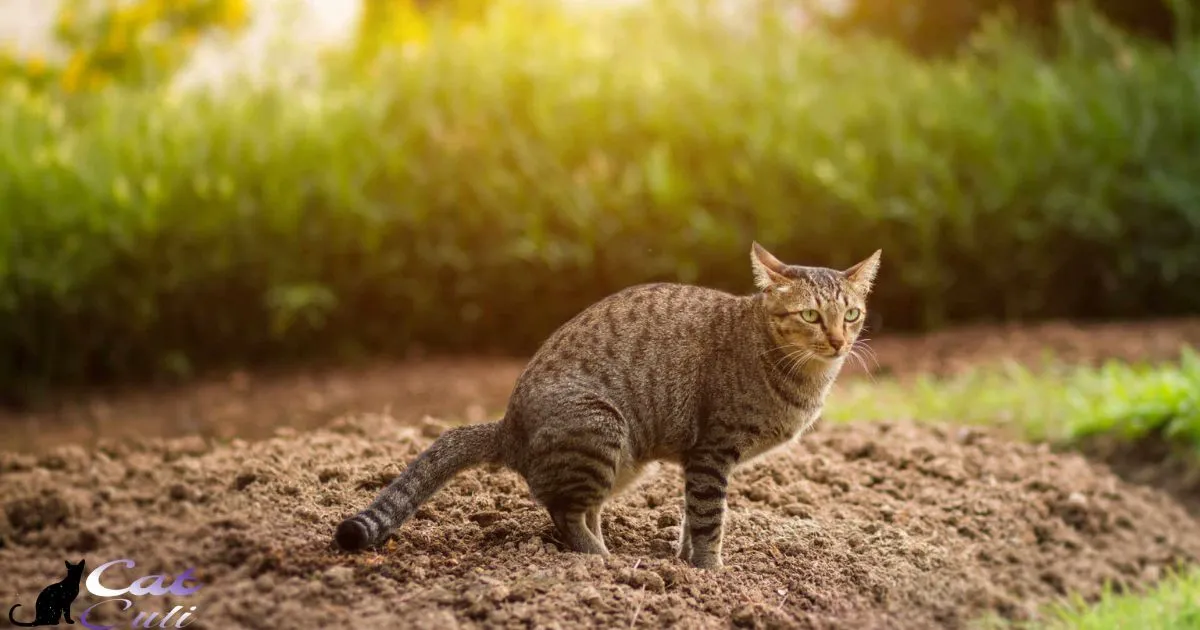Cats might poop less on wet food due to its higher moisture content. Wet food can ease digestion and absorb more efficiently, reducing waste. Individual cats vary in their bathroom habits, so it’s not a guarantee. Monitoring your cat’s health and behaviour is essential when changing their diet.
Do cats poop less on wet food? The answer might surprise you. Understanding the impact of diet on your feline friend’s bathroom habits is a fascinating exploration into their health and digestion. Let’s delve into the intriguing relationship between a cat’s diet and their litter box routine.
Wet food’s higher moisture content might affect a cat’s digestion, potentially leading to fewer trips to the litter box. Exploring this connection could offer insights into optimizing your cat’s diet for their overall health and well-being. Stay with us to uncover more about this intriguing aspect of feline care.
A Brief Lesson On Wet Cat Food
Wet cat food is a popular choice for many pet owners. It comes in cans or pouches and contains higher moisture content than dry cat food. Cats often find wet food more palatable, and it can be beneficial for their hydration.
Pet owners should be mindful of the expiration date on wet cat food packaging. Additionally, serving the appropriate portion size helps maintain a healthy diet for cats. Mixing wet and dry cat food can offer a balanced nutrition approach for feline companions.
Benefits Of Wet Cat Food
- Hydration: Wet cat food has higher moisture content, aiding in keeping cats well-hydrated.
- Palatability: Cats often find wet food more flavorful and appealing.
- Digestibility: The moisture in wet cat food can contribute to easier digestion for felines.
- Nutritional Variety: It allows for a diverse diet when combined with other cat food types.
- Weight Management: Controlled portion sizes in wet food can assist in maintaining a healthy weight.
- Texture Preferences: Some cats prefer the texture of wet food over dry kibble.
- Senior Cat Care: Wet cat food is often recommended for senior cats with dental issues or reduced appetite.
- Medication Administration: It can be easier to conceal medications in wet cat food for administration.
- Overall Wellness: Provides a balanced and nutritious diet for the overall well-being of cats.
How Wet Food Digests
Wet food digests quickly in the stomach. Stomach acids break down the food. This helps the body absorb nutrients faster. The process is efficient and aids in quick energy release.
When you eat wet food, enzymes in your saliva start breaking it down. The stomach then continues the digestion process. This active digestion ensures that nutrients are readily available for the body to use. Overall, wet food digestion is a swift and effective process.
Cats & Litter Box Habits
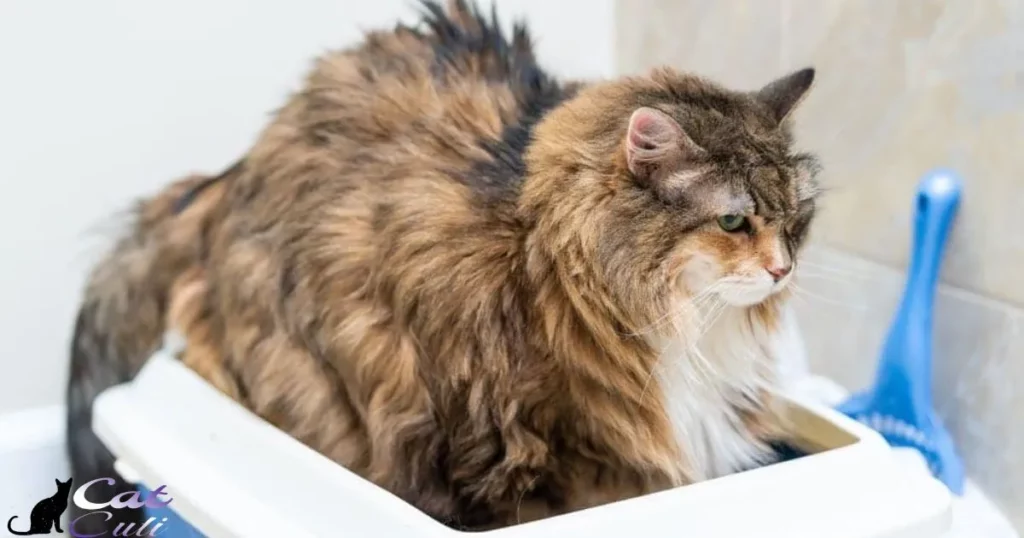
Cats are known for their unique litter box habits. They use it for both urination and defecation. Keeping the litter box clean and in a quiet location helps ensure that cats continue to use it regularly.
It’s essential to scoop the litter box daily and change the litter regularly. Cats prefer a clean environment, and maintaining their litter box hygiene is crucial for their well-being. Providing a comfortable and accessible litter box contributes to a happy and healthy cat.
Why Would Wet Food Make Cats Poop Less?
Wet cat food might reduce the frequency of cat bowel movements. The moisture content in wet food helps keep cats hydrated, potentially leading to less waste production. Wet food often contains higher-quality ingredients that are easily digestible, contributing to a healthier digestive system in cats.
Unlike dry cat food, wet food doesn’t contain as many fillers that might pass through the digestive system without being fully absorbed. This can result in firmer stools and less frequent pooping for cats on a wet food diet. Overall, the higher moisture content and better digestibility of wet cat food may contribute to a positive impact on a cat’s bowel habits.
Wet Cat Food + Loose Stool
If your cat eats wet food and has loose stool, it might be due to the moisture content in the food. Wet cat food has high water content, which can affect the consistency of your cat’s stool. Consider adjusting the amount of wet food and introducing more dry food to help regulate your cat’s digestion.
Monitor your cat’s response to different food ratios and consult with your veterinarian for advice. Increasing fibre in the diet with dry food might alleviate the issue. A balanced diet plays a crucial role in maintaining your cat’s digestive health and overall well-being.
Potential Allergies
- Symptoms: Recognize signs such as itching, redness, or digestive issues.
- Common Allergens: Identify potential triggers like certain foods, pollen, or dust.
- Skin Testing: Consult a vet for allergy testing to pinpoint specific allergens.
- Dietary Changes: Adjust your pet’s diet by eliminating potential allergens.
- Medication Options: Explore allergy medications or supplements recommended by the vet.
- Environmental Control: Minimize exposure to allergens by keeping the living area clean.
- Regular Vet Check-ups: Schedule routine check-ups to monitor and manage potential allergies effectively.
Is There A Way To Make Your Cat Poop Less? 3 Solutions
To maintain your cat’s digestive health, monitor their diet closely. While Much Wet Food Cause Diarrhea In Cats is a concern, moderation is key. Providing a balanced mix of wet and dry food can prevent digestive issues. Additionally, prioritize hydration by ensuring they have access to fresh water at all times.
Opting for a high-fiber diet, maintaining hydration, and promoting physical activity are key in managing your cat’s bathroom habits. By taking a proactive approach to their health, you can effectively decrease the frequency of litter box use, ensuring a more convenient and pleasant experience for both you and your furry companion.
Don’t Overfeed Your Cat
Introduce more fiber into your cat’s diet through options like pumpkin or specialized cat food. This helps regulate digestion and decrease the need for frequent bathroom trips.
Use Supplements
Adequate water intake is crucial. Make sure your cat stays hydrated, as it contributes to better digestion and can minimize litter box visits.
Don’t Feed Table Scraps
Regular physical activity keeps your cat’s digestive system active, leading to a healthier and less frequent pooping schedule.
What Does Normal Cat Poop Look Like?
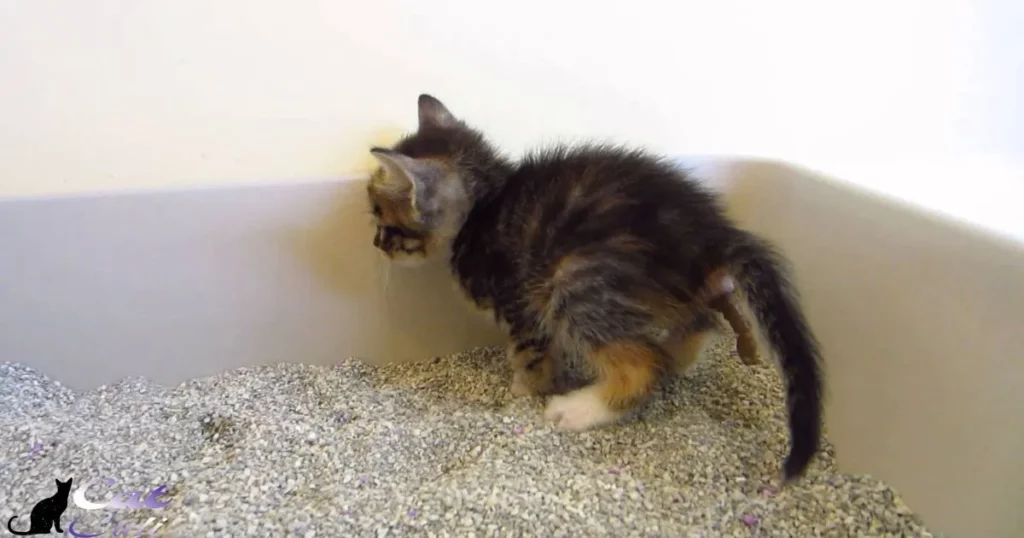
Normal cat poop is typically brown in color and has a firm consistency. It should hold its shape but still be easy to pick up. Healthy cat feces have a mild odor, not overly strong or offensive. Keep an eye on changes in color, texture, or smell, as these can indicate potential health issues.
If you notice any abnormalities in your cat’s poop, such as diarrhea, blood, or unusual colors, it’s essential to consult with a veterinarian. Regular monitoring of your cat’s litter box habits helps ensure their overall well-being and allows for early detection of any potential health concerns.
How Long Can A Cat Go Without Pooping?
Cats typically poop every day, but it’s normal for them to skip a day occasionally. If your cat hasn’t pooped in two days, it might be a sign of a problem. Lack of bowel movements can be caused by factors like dehydration, diet changes, or underlying health issues.
To help your cat, ensure they have access to fresh water and provide a balanced diet with enough fiber. If the issue persists, consult with a veterinarian to rule out any potential health concerns and ensure your feline friend stays healthy and happy.
What If My Cat Poops More Than Twice A Day?
Is your cat pooping more than twice a day? This could be a sign of a health issue. Monitor your cat’s litter box habits and consult with a vet if the frequent pooping continues. Maintaining a healthy diet and regular vet check-ups can contribute to your cat’s well-being.
Keep an eye on their litter box for any changes in frequency or consistency.Excessive pooping in cats may indicate digestive issues or dietary problems. Ensure your cat is getting a balanced diet and provide access to fresh water.
If the issue persists, schedule a vet visit to rule out any underlying health concerns. Taking proactive steps to address your cat’s poop frequency can lead to a happier and healthier feline companion.
When To See Your Veterinarian
Regular check-ups with your veterinarian are crucial for your pet’s health. Schedule appointments for vaccinations and preventive care. If your pet shows signs of illness, don’t wait – seek prompt veterinary attention.
Common signs of issues include changes in appetite, behavior, or energy levels. Trust your instincts and consult your veterinarian to ensure your pet stays happy and healthy. Regular vet visits build a strong foundation for your pet’s well-being.
Can Wet Food Make Cats Constipated?
Wet cat food might cause constipation in cats. It lacks the fiber found in dry food that helps with digestion. Cats need a balance of wet and dry food for a healthy digestive system. If they only eat wet food, it could lead to constipation issues.
To prevent constipation, ensure your cat has a mix of wet and dry food. Hydration is crucial, so make sure they have access to fresh water. Observing their litter box habits can help you monitor their digestive health. If you notice any concerns, consult with your veterinarian for advice on the best diet for your cat.
How Often Should A Cat Poop?
Cats should poop at least once a day to maintain good health. If your cat poops less frequently, it might be a sign of constipation or other health issues. Ensure your cat has a balanced diet with sufficient fiber and consult a vet if you notice any changes in their bathroom habits. Regular monitoring of your cat’s poop frequency is crucial for their overall well-being.
Keep an eye on your cat’s litter box to track their poop schedule. Any significant changes, such as increased or decreased frequency, could indicate underlying health problems. Maintaining a consistent and healthy poop routine is essential for your cat’s happiness and health.
Should I Feed Wet Or Dry Food?
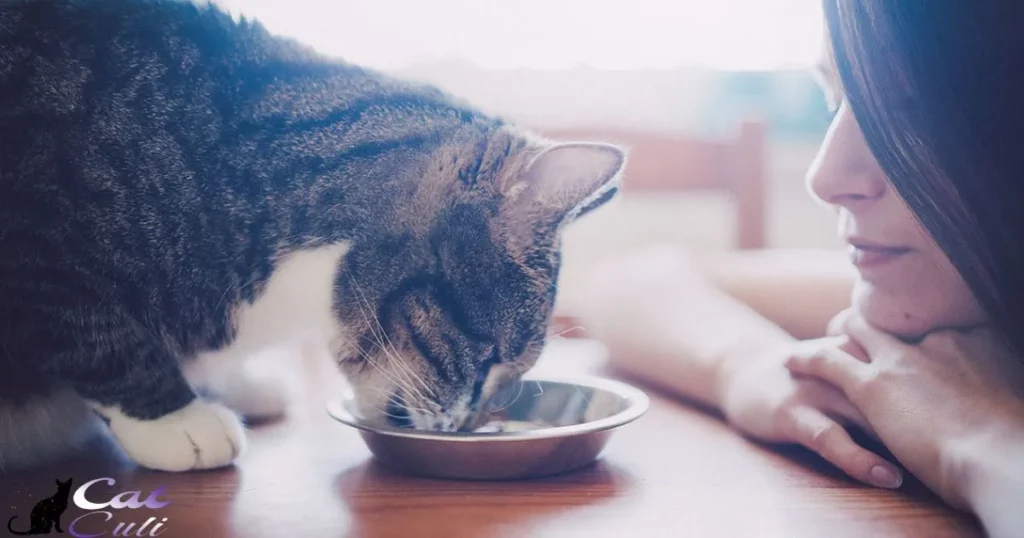
Choosing between wet and dry food for your pet depends on their preferences and dietary needs. Wet food contains more moisture, which can be beneficial for hydration, especially in cats.
On the other hand, dry food is convenient and helps maintain dental health by promoting chewing. Consider your pet’s age, health, and personal taste when deciding between wet and dry food to ensure a balanced and enjoyable diet.
It’s essential to consult your veterinarian for advice tailored to your pet’s specific requirements. Additionally, observe your pet’s behaviour and response to each type of food to make an informed decision for their overall well-being.
| Wet Food Pros | Wet Food Cons |
| High Moisture Content | Shorter Shelf Life |
| Palatable for Picky Eaters | More Expensive than Dry Food |
| Easy to Chew and Swallow | Can Cause Messy Eating Habits |
| Variety of Flavors | May Contribute to Dental Issues |
| Dry Food Pros | Dry Food Cons |
| Convenient and Portable | Lower Moisture Content |
| Longer Shelf Life | Some Pets Prefer Moisture-Rich Foods |
| Promotes Dental Health | Potential for Obesity in Some Cases |
| Cost-Effective | Not Ideal for Pets with Dental or Gum Problems |
Is It Normal For A Cat To Not Poop Everyday?
Cats usually poop every day, so if your cat isn’t pooping daily, it might be a cause for concern. Check your cat’s diet to ensure it includes enough fiber, as this helps in regular bowel movements. If the issue persists, consulting with a vet is advisable to rule out any underlying health problems.
Observing your cat’s behavior and addressing dietary needs can often resolve irregular bowel movements. Maintaining a healthy and consistent feeding routine contributes to your cat’s overall well-being and digestive regularity.
How Long Can A Cat Go Without Pooping?
Cats usually poop once or twice a day. If a cat doesn’t poop for more than two days, it could be a sign of a problem. Constipation in cats may be caused by various factors like diet or dehydration. If you notice your cat not pooping regularly, it’s essential to consult with a vet to ensure their well-being.
To prevent constipation, ensure your cat has a balanced diet with enough fiber and stays hydrated. Regular exercise also helps in maintaining a healthy digestive system for your feline friend. If you ever observe prolonged periods without pooping, seek professional advice for the best course of action.
How Can I Get My Cat To Eat Canned Food?
Getting your cat to eat canned food can be a challenge, but there are simple tricks to encourage them. First, try warming the canned food slightly to enhance its aroma and make it more appealing to your cat’s senses.Mix a small amount of the new food with their current favourite to gradually transition them.
Patience is key, as it may take time for your cat to adjust to the change in their diet.It’s essential to offer a variety of canned food options to determine your cat’s preferences. Experiment with different flavours and textures, ensuring that the chosen food meets their nutritional needs.
By using these strategies and offering a patient and gradual approach, you can increase the likelihood of your cat enjoying and accepting canned food as part of their regular diet.
Does Wet Food Make Cats Poop More?
Wet cat food might increase a cat’s bowel movements. The moisture content in wet food keeps cats hydrated, promoting regular digestion. Cats on wet diets often have softer stools, leading to more frequent pooping.
Unlike dry food, wet cat food supports a cat’s overall health by preventing dehydration. The higher water content aids in digestion, potentially resulting in increased bathroom visits. Observing your cat’s poop consistency can provide insights into their well-being and diet effectiveness.
Which Is Better For Cats, Dry Or Wet Food?
| Criteria | Dry Food | Wet Food |
| Hydration | Limited moisture content | High moisture content |
| Digestibility | Takes longer to digest | Easier digestion |
| Texture | Crunchy and dry | Soft and moist |
| Palatability | Varies; some cats prefer the taste | Generally appealing to many cats |
| Dental Health | May help with dental health | Limited impact on dental health |
| Frequency of Feeding | Typically fed less frequently | More frequent feeding required |
| Cost | Often more economical | Can be more expensive |
| Health Considerations | Suitable for some health conditions | Recommended for certain health issues |
| Variety | Wide variety of options available | Limited variety in comparison |
Note: The choice between dry and wet food depends on various factors, including individual cat preferences, health conditions, and owner lifestyle. It’s advisable to consult with a veterinarian for personalized recommendations.
Can Cats Live On Dry Food Only?
Cats should not rely solely on dry food. They need a balanced diet with wet food for hydration. Dry food lacks moisture, which can lead to urinary and kidney issues in cats. It’s essential to provide a mix of wet and dry food to keep your feline friend healthy.
Feeding only dry food may cause health problems for cats. They require the moisture content in wet food for proper hydration. To ensure your cat’s well-being, incorporate a combination of dry and wet food into their diet.
Do Cats Get Bored Of Their Food?
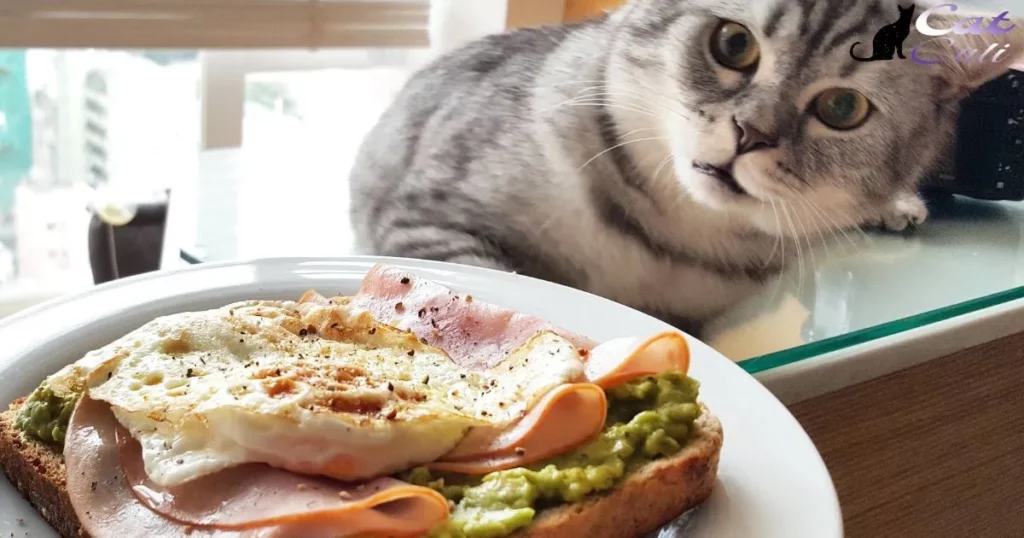
Cats may become bored with their food if it’s the same every day. Changing their diet can keep them interested and ensure they get varied nutrients. Owners should observe their cat’s preferences and consult a vet for suitable options to keep their feline friend excited about mealtime.
Introducing new flavors and textures can prevent cats from getting bored with their food. It’s essential to monitor their reactions and make gradual changes to avoid digestive issues. Keep mealtime an enjoyable experience for your cat by providing a mix of tasty and nutritious options.
Will Cats Starve C, If They Don’t Like The Food?
Cats may refuse to eat if they don’t like their food. They might starve if they find the food unappealing. It’s important to offer cats food that they enjoy to ensure they stay healthy and well-fed.
If a cat dislikes its food, it may refuse to eat altogether. This refusal can lead to hunger and potential health issues for the cat. Ensuring that the cat likes its food helps maintain a proper diet and prevents starvation.
Why Do Cats Not Finish Their Food?
Cats may not finish their food for various reasons. Some cats are picky eaters and may not like the taste or texture of certain foods. Others might be sensitive to changes in their environment or routine, causing a loss of appetite.
Health issues could be a factor. Dental problems or digestive issues may make it uncomfortable for cats to eat their entire meal. It’s essential for cat owners to observe their pets closely, address any potential health concerns, and offer a variety of foods to cater to their preferences.
Should Cats Get Wet Food Everyday?
Feeding cats wet food every day is a good idea because it helps them stay hydrated. Cats often don’t drink enough water, so wet food provides additional moisture in their diet. This can be especially beneficial for cats prone to urinary tract issues.
Wet food is more palatable for many cats, making it an enjoyable mealtime experience. It’s a convenient way to ensure they receive essential nutrients while keeping them well-hydrated. In conclusion, incorporating wet food into a cat’s daily diet contributes to their overall health and well-being.
Can You Mix Wet And Dry Cat Food?
Yes, you can mix wet and dry cat food. Combining both types provides a balanced diet for your cat, offering hydration from the wet food and the dental benefits of the dry kibble. Many cat owners find this approach beneficial in meeting their cat’s nutritional needs.
It’s essential to introduce the mixed food gradually to avoid upsetting your cat’s stomach. Start by mixing small amounts and observe how your cat responds. If there are any signs of discomfort or digestive issues, adjust the ratio or consult your veterinarian for personalized advice.
When Should I See A Vet?
If your pet is sick or injured, see a vet as soon as possible. Vets can help diagnose and treat your pet’s health issues. Regular check-ups are also important to keep your pet healthy. Don’t wait if you notice any unusual behavior or signs of illness.
It’s a good idea to see a vet at least once a year for preventive care. During these visits, vets can catch potential health problems early. Your pet’s well-being is in your hands, so schedule regular vet appointments to ensure a happy and healthy life for your furry friend.
What Should I Ask A Vet About The Most Adapted Diet For My Cat?
When talking to a vet about your cat’s diet, ask about the best food for their specific needs. Inquire about the right balance of proteins, fats, and carbohydrates for your cat’s health. Discuss any allergies or sensitivities your cat may have to ensure a well-adapted diet that keeps them happy and healthy.
Seek guidance on portion control and feeding schedules. Vets can provide valuable insights into the quantity and frequency of meals suitable for your cat’s age, weight, and activity level. Asking these questions will help you make informed decisions to support your cat’s optimal nutrition.
How Much To Feed A Healthy Kitten Or Cat
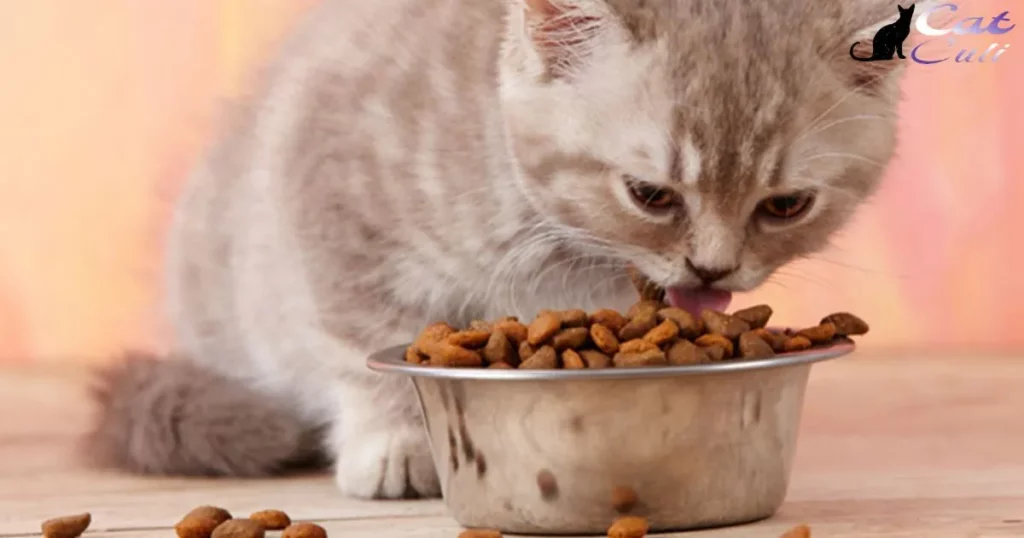
To keep your kitten or cat healthy, it’s essential to provide the right amount of food. Feed them according to their age, weight, and activity level. A balanced diet with proper portions helps maintain their overall well-being.
Monitor your pet’s weight and adjust their food intake accordingly. Overfeeding can lead to obesity, while underfeeding may cause nutritional deficiencies. Regularly consult with your veterinarian to ensure your cat receives the appropriate nutrition for a happy and healthy life.
Wet Food Vs Dry Food For Cats: What’s The Difference?
| Aspect | Wet Food | Dry Food |
| Hydration | Higher moisture content, aids hydration | Lower moisture content, less hydrating |
| Texture | Soft and chewy texture | Crunchy and dry texture |
| Palatability | Often more palatable for picky eaters | Varies, some cats prefer the crunch |
| Convenience | Comes in cans or pouches, easy to serve | Convenient, no need for refrigeration |
| Storage | Requires refrigeration after opening | Easy to store, no refrigeration needed |
| Nutrient Density | May have higher protein content | Concentrated nutrients per serving |
| Dental Health | Less effective in cleaning teeth | Can contribute to dental health if crunchy |
| Shelf Life | Shorter shelf life once opened | Longer shelf life, less perishable |
How Often Do Cats Poop And Pee
Cats poop and pee regularly to maintain their health. They typically visit the litter box several times a day. Monitoring your cat’s bathroom habits can help you identify any potential health issues early on. If you notice any significant changes in their routine, it’s essential to consult with a veterinarian promptly.
Understanding your cat’s normal pooping and peeing frequency is crucial for their well-being. Keep an eye on their litter box habits and seek professional advice if you observe any unusual patterns. Regular monitoring ensures that your feline friend stays happy and healthy.
Does Wet Food Make Cats Poop Smell Worse
This happens because wet food contains higher moisture levels, which can affect the odour. Cats also tend to digest wet food differently than dry food, leading to a potentially more pungent smell. If you’re concerned about your cat’s poop odour, you may want to consider adjusting their diet or consulting with a veterinarian for advice.
In contrast, dry cat food may result in less intense-smelling faeces. The lower moisture content in dry food can contribute to firmer stools and a milder scent. It’s essential to find the right balance in your cat’s diet to ensure they receive the necessary nutrients for overall health and well-being.
How Often Should Indoor Cats Poop
Indoor cats typically poop once or twice a day. Their bathroom habits depend on factors like diet, age, and overall health. Providing a balanced diet with enough fiber and staying attentive to any changes in litter box behavior can help ensure your indoor cat maintains regular and healthy bowel movements.
Monitoring your cat’s litter box is crucial. If you notice any sudden changes in frequency or consistency, consulting with a vet is advisable to rule out any potential health issues. Keep an eye on your feline friend’s bathroom routine to ensure their well-being.
My Cat Poops 5 Times A Day
- Frequency: The cat poops five times a day, indicating a relatively active digestive system.
- Normal Variation: Cats’ poop frequency can vary, and some may go multiple times a day.
- Diet Consideration: The cat’s diet plays a role; high-fiber or wet food diets can contribute to increased bowel movements.
- Hydration: Ensure the cat has access to fresh water, as hydration influences bowel regularity.
- Monitoring: Regularly observe the litter box for any changes in frequency, consistency, or signs of distress.
- Veterinary Consultation: If concerned, consult a vet to rule out any underlying health issues affecting the cat’s digestive health.
FAQ’s
Does wet cat food make cats poop less?
Wet food often leads to smaller, firmer stools due to higher moisture content and better digestion.
Does wet food cause constipation in cats?
Generally, wet food helps prevent constipation by providing hydration and aiding digestion.
Does wet food make cats more full?
Yes, wet food tends to make cats feel fuller because of its higher water and protein content.
Do cats poop more if they eat more?
An increase in food intake often results in more frequent bowel movements for cats.
Conclusion
In summary, the impact of wet food on a cat’s bowel movements suggests that Do Cats Poop Less On Wet Food? has some validity. Cats fed wet food tend to produce smaller, firmer stools due to the higher moisture content aiding digestion. This diet often results in decreased frequency in bowel movements
While individual cat preferences and health conditions vary, the consensus leans toward wet food potentially leading to reduced pooping. However, this isn’t always a negative. It signifies more efficient nutrient absorption and hydration, contributing to a healthier digestive system overall.
